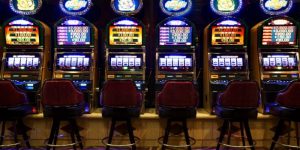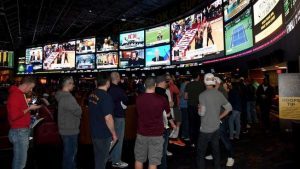Officials in the United Kingdom are calling for stricter gambling laws for online casinos amidst ongoing concerns about damaging gambling behaviors and habits. In the UK, anyone over the age of 18 is allowed to gamble with no tax on gambling winnings. The passing of the Gambling Act of 2005 legalized all forms of gambling in the UK, including online platforms, as long as the operators obtained a license from the UK Gambling Commission. Due to easy access and lack of taxation, gambling has become increasingly popular amongst citizens, raising concerns about what gambling operators are doing to ensure the safety of their customers. Members of Parliament (MPs) are now calling for stricter rules to be put in place in order to prevent gambling-related harm. The MPs recent report on gambling identifies some of these troubling behaviors, and now representatives are pushing for a number of new recommendations to change gambling law throughout the UK.
Proposed Changes
The changes suggested by officials are being viewed as a “root and branch” overhaul of gambling law. All of the recommendations focus on online betting, particularly the amount of money bettors are able to spend on a given bet or on their account. The MPs have suggested that the following be considered: a £2 stake limit on online slot machines, the elimination of betting via credit cards, restrictions on VIP accounts, and an investigation into non-disclosure agreements. The proposed £2 stake limit echoes the limit at all fixed-odds betting terminals throughout the UK, which went into effect earlier this year. The decision to end betting via credit card while restricting VIP accounts aims to limit harmful gambling behaviors. Betting via credit card allows bettors to rack up large amounts of debt before having to actually pay for their bets, and VIP or rewards accounts often promote special betting deals that encourage bettors to bet large amounts frequently. In addition to these changes, MPs believe that the Gambling Act of 2005 needs to be revised or replaced. Online gambling, which currently brings in nearly £5.6 billion a year, has changed significantly since 2005 and could benefit from new laws and regulations that appropriately address the online platforms that have become popular in the current market.
Parties in Agreement
The introduction of new policies may seem strict, but they are necessary in order to address harmful gambling habits in the UK. Members from all parties agree that stricter gambling laws must be introduced on some level, suggesting that gambling policy could undergo significant change in the near future. Prime Minister Boris Johnson and the Labour party have both expressed their support of stricter online gambling regulation, without providing any concrete plans for when changes could be implemented. While the Labour party was largely responsible for the lax gambling laws and regulations associated with the Gambling Act of 2005, they have since acknowledged the growing gambling problem within the UK and hope that action can be taken to resolve some of these issues.
The latest push for reform comes on the heels of a six-month inquiry led by All-Party Parliamentary Group members Duncan Smith, Carolyn Harris, and Ronnie Cowan. Their report provides evidence gathered from gambling companies, as well as gambling addicts. As a result of this inquiry, the UK has since put in place limits on fixed-odds betting terminals and are now hoping to do the same for online slots and games.
Addressing Concerns
Looking ahead, the largest concern for constituents is the safety of citizens who are under financial distress due to gambling addiction. The challenge lies in the ability to properly identify when a person has a gambling problem and whether or not there is existing software that is capable of monitoring this. What constitutes affordable gambling? When is it time for gaming companies to intervene and block bettors from placing additional bets? These are the challenges that officials are now facing in the UK. Brigid Simmonds, chair of the Betting and Gaming Council, suggested that the Gambling Commission, currently responsible for monitoring these issues, isn’t fit to monitor internet gambling since it has grown astronomically from its introduction over ten years ago. Some of the immediate concerns for lawmakers moving forward are ensuring that regulators are able to properly identify vulnerable individuals and to protect children from gambling illegally, while also simplifying terms and conditions for online gambling sites. While no immediate date for reform has been set, the fact that all parties agree that stricter laws should be in place would indicate that change is on the horizon.





